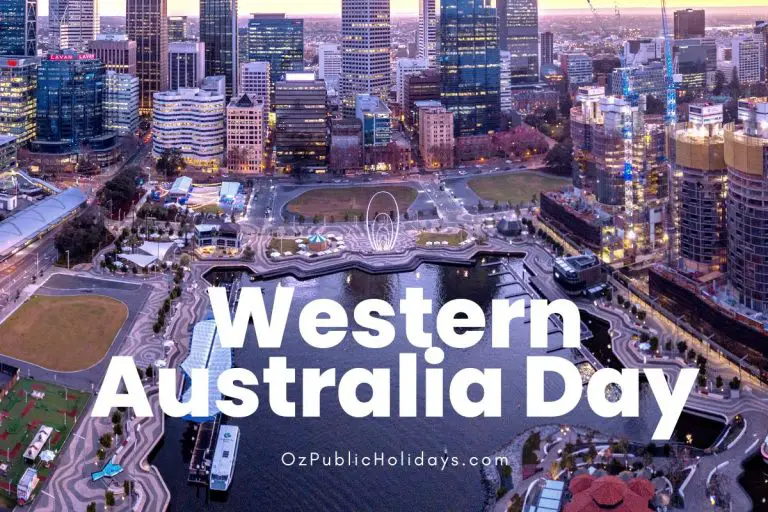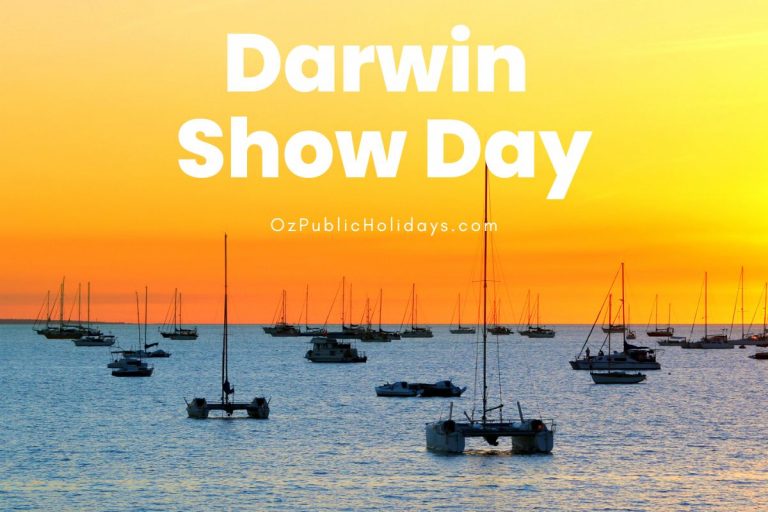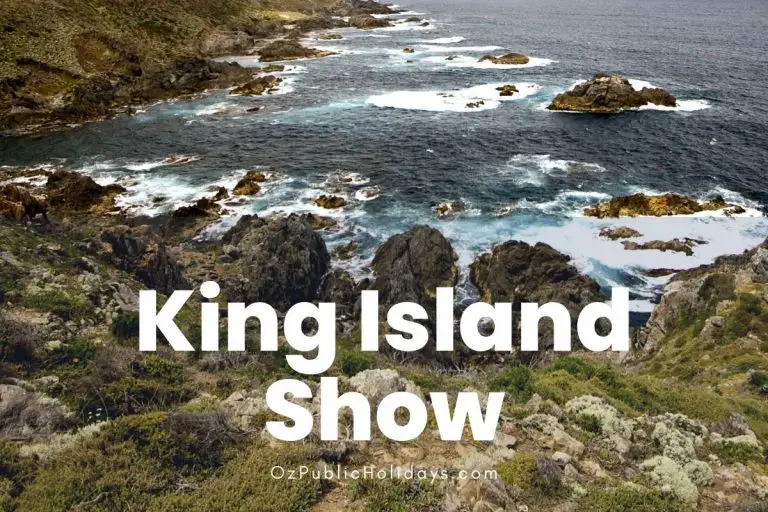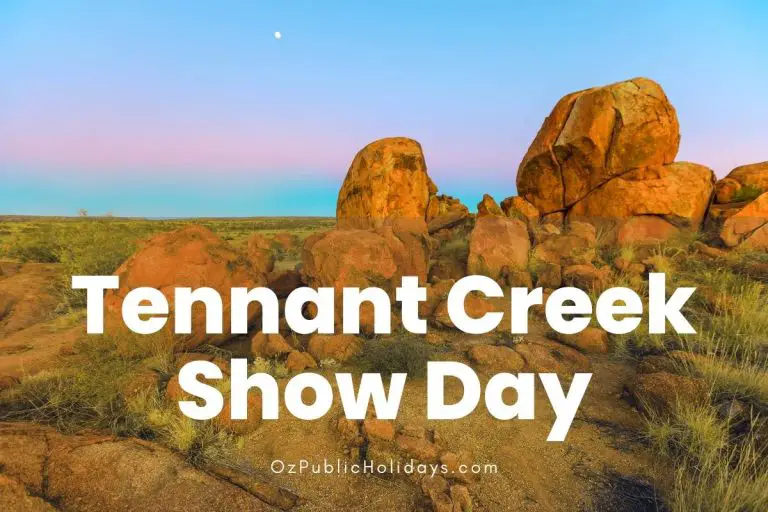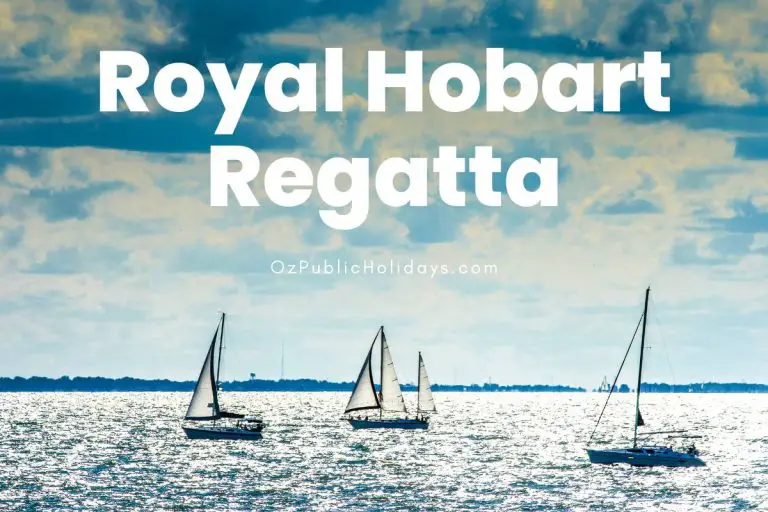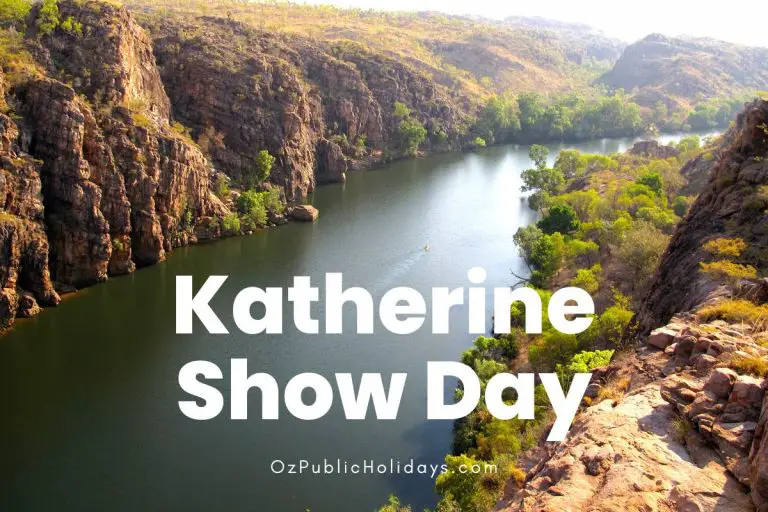Reconciliation Day
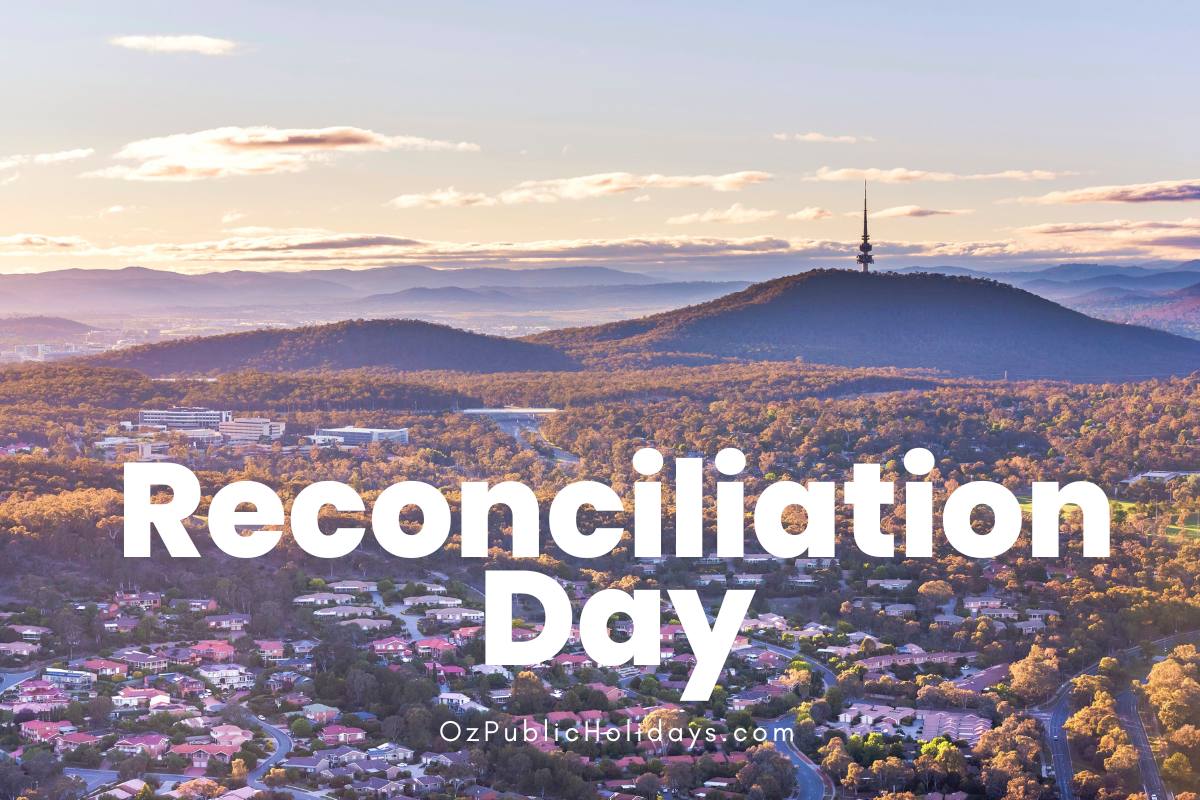
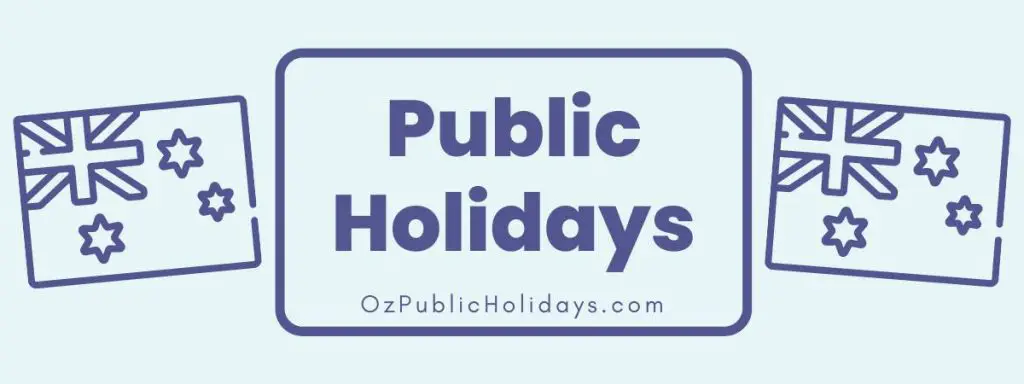
When is Reconciliation Day 2023?
Reconciliation Day 2023 will take place on Monday, 2 June.
This public holiday is part of a broader Reconciliation Week that runs from 27 May to 3 June.
Reconciliation Day 2023, 2024, 2025, 2026
| Year | Date | Holiday | State |
|---|---|---|---|
| 2023 | 29 May | Reconciliation Day | ACT |
| 2024 | 27 May | Reconciliation Day | ACT |
| 2025 | 2 Jun | Reconciliation Day | ACT |
| 2026 | 1 Jun | Reconciliation Day | ACT |
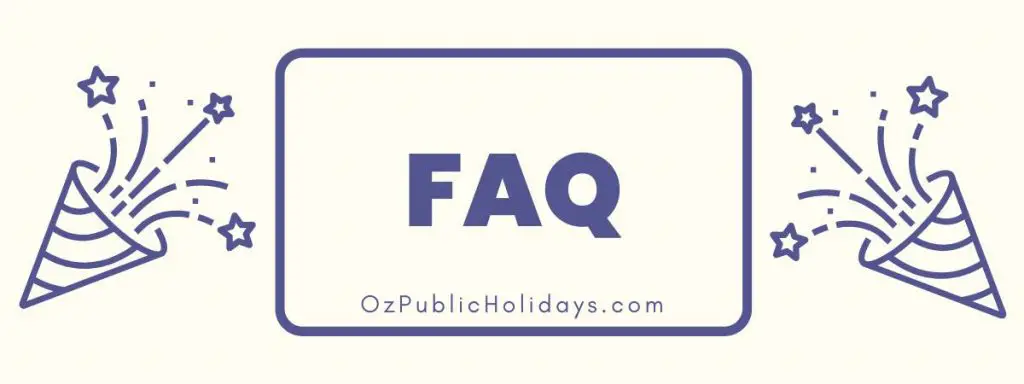
Reconciliation Day FAQ
Is Reconciliation Day a Public Holiday?
Yes, Reconciliation Day is a public holiday, but only in the Australian Capital Territory. It is not a public holiday in the rest of Australia.
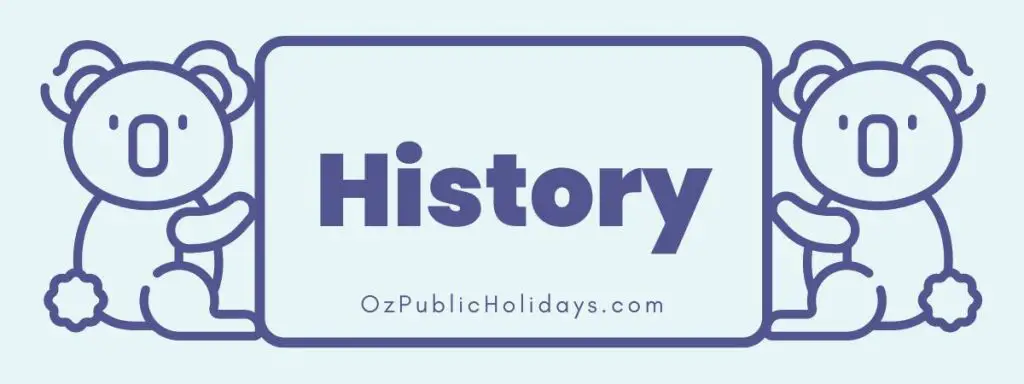
History of Reconciliation Day
Reconciliation Day is a celebration held in the ACT as a part of National Reconciliation Week, the day falls on the first Monday on or after 27 May.
Reconciliation Week runs from 27 May to 3 June.
The public holiday, Reconciliation Day, is scheduled for the Monday that falls in that week in order to create a 3 day long weekend.
This is why the actual date of Reconciliation Day changes every year.
27 May Referendum
Reconciliation Week is a celebration of the progress in the fight for Aboriginal and Torres Strait Islander rights.
It starts on 27 May to commemorate the referendum that recognized the Constitutional rights of Aboriginals and Torres Strait Islanders.
On May 27th 1967, Australians voted in a referendum to approve two amendments to the Australian Constitution that would better reflect Indigenous Australians.
The amendments changed sections 51(xxvi) and 127, granting Aboriginal Australians more rights and empowering the Federal Parliament to legislate specifically for this racial group.
90.77% of voters approved these amendments, ensuring that they would be put into effect.
3 June Court Decision
The finale of Reconciliation Week is on 3 June as a way to commemorate the landmark court decision that recognized Aboriginal and Torres Strait Islanders as the traditional Owners and Custodians of Australian land.
Typically called the Mabo decision, this court case was decided on 3 June 1992 and recognised that Aboriginal and Torres Strait Islander peoples are the traditional owners of the land.
This was a very big deal for Aboriginal and Torres Strait Islander rights, as it also led to the Native Title Act of 1993.
This act recognised the original right of Aboriginal and Torres Strait Islander peoples to certain lands through traditional laws and customs.
Today, over 15% of Australia is claimed through native title.
Bridge Walk
The desire and intent for reconciliation is becoming a strong part of Australia’s culture. The historic Bridge Walk of 2000 is a strong testament to that.
In May of 2000, the Council for Aboriginal Reconciliation organised a walk across the Sydney Harbour Bridge, in a show of support for reconciliation between European and Aboriginal cultures.
Originally they planned for both sides to stand on opposite ends of the bridge, walk towards each other and meet in the middle.
However many people were not comfortable with the idea of separating participants into two groups like that.
So they decided to have everyone start at the north end of the bridge and walk to the south end where they’d hold a free concert.
The organisers were originally anticipating a crowd of several hundreds of people, potentially a few thousand.
But on the Bridge Walk Day, 28 May 2000, over 250,000 people showed up to march across the bridge for 6 consecutive hours.
It was the largest political demonstration in the history of the country and signalled the willingness of those around the country to participate in reconciliation and creating a fairer country for everyone.
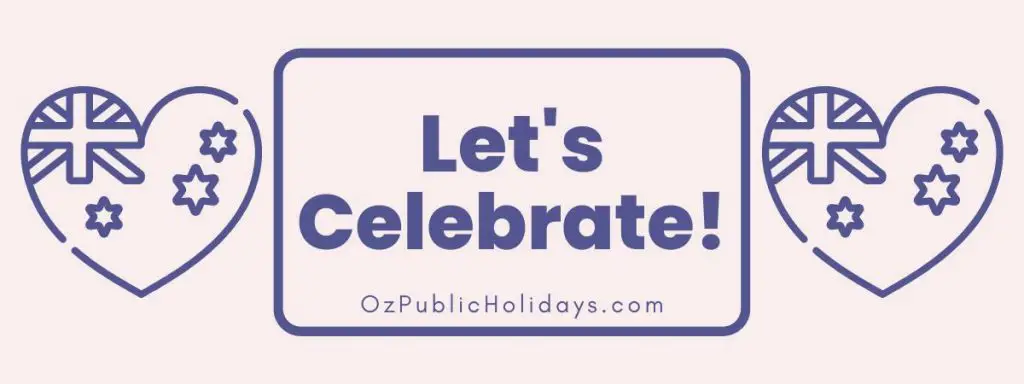
How to Celebrate Reconciliation Day 2023
Attend Reconciliation Day 2023 festivals
Celebrating their specific state holiday, Canberra hosts a Reconciliation Day festival at their National Arboretum, typically from late morning to mid-afternoon.
It’s a free family-friendly event made to help people learn more about Aboriginal culture and celebrate Reconciliation!
The event features live entertainers performing traditional Aboriginal demonstrations, panels about Aboriginal history, culture and current issues and arts and craft workshops.
It will also include free food, exhibitions, stalls and other forms of entertainment and introduction into Aboriginal lifestyles!
As the ACT Reconciliation Co-Chair Selina Walker said last year: “I want all Canberrans to celebrate reconciliation – not to be embarrassed or ashamed – but to come on board with our journey.”
She also mentioned that the Reconciliation Day festival has done a lot to promote the actual work of reconciliation itself.
“We’ve seen a massive shift in the way people think about reconciliation since the public holiday was declared – it’s prompted a conversation”
“Often, people are interested and want to help, but they don’t know where to start and feel a little isolated. This is an avenue for them to begin to take action.”
Celebrate the ‘Theme of the Year’
The Reconciliation Week is a week-long event dedicated to reconciliation between Indigenous and non-Indigenous Australians. Each year, the week focuses on a different theme, such as celebration of traditional cultures or the reconciliation of past wrongs.
Each year the National Reconciliation Week website releases posters and resources dedicated to the new theme, to help people celebrate it in their daily lives and spread the message.
This way, the work of reconciliation can be done throughout the year, not just focused on over one week.
Visit Reconciliation Place
One of the most important landmarks in the country in regards to celebration of Aboriginal culture is Reconciliation Place, located in the National Triangle in Canberra.
Reconciliation Place was constructed in 2001-2002 and features many beautiful works of art created by Aboriginal people.
There are artworks made of stone, iron, glass, wood and all depicting important issues to Aboriginal people in creative and symbolic ways.
Reconciliation Place is rather big, and can take around 60 minutes to fully explore and take in completely, so pack a lunch, bring some family and explore the artwork of these amazing cultures!
Learn the struggle for civil rights
One of the most important steps in reconciliation is learning the history of Aboriginal peoples and the struggles they currently face.
Knowing these things can help you be informed on the issues currently going on and what can be done to improve reconciliation.
The stories of the past are filled with heroes and brave people, who can serve as role models and whose stories can maybe even provide solutions for problems in our own lives.
Celebrate Aboriginal culture
There are many amazing facts and accomplishments to celebrate about Aboriginal people, and learning more about their culture and history is a great way to celebrate Reconciliation Day!
Here are just a few interesting facts:
In evolutionary terms, Australian Aboriginal people and Torres Strait Islanders are among the oldest continuous civilizations on earth, thought to have migrated out of Africa over 70,000 years ago.
Aboriginal language includes a few words that have been adopted wholesale into English. Some of these words include koala, wombat, barramundi, kookaburra, boomerang, yakka and bung.
People of Aboriginal descent have made incredible contributions to Australia as a whole, in the fields of art, music, law, medicine, entertainment, and more.
If you have any ideas for celebrating Reconciliation Day in 2023, we’d love to hear more, so feel free to post in the comments below!
Also feel free to share the article with those who would like to learn more by using the buttons below!
